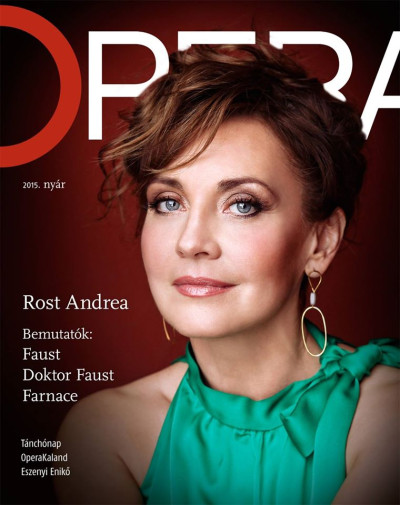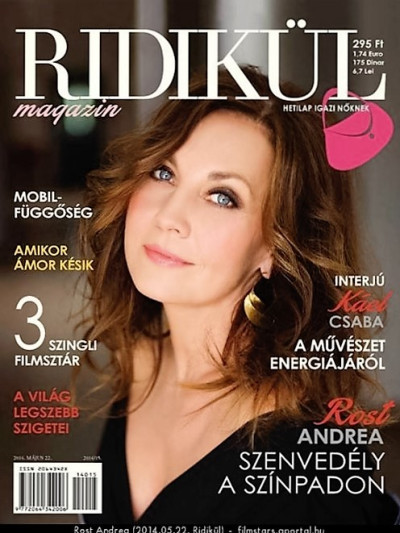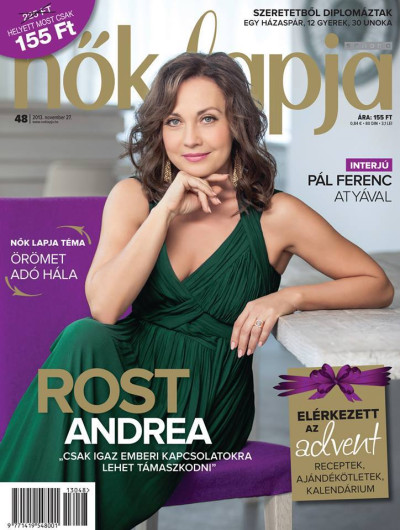
- Home
- Press
Reviews
Online Merker
"Die Kossuth-Preisträgerin (2004) und Ehrenbürgerin von Budapest (2014) Andrea Rost, die 1991 Ensemblemitglied der Wiener Staatsoper wurde und 1992 bei den Salzburger Festspielen in Janaceks „Aus einem Totenhaus“ debütiert hatte, ist auf den großen Opernbühnen der Welt zu Hause. An diesem Abend begeisterte sie das Publikum als melancholische Mimi mit ihrem strahlenden lyrischen Sopran, der in allen Registern formvollendet erstrahlte. Ihre hohe Gesangskultur ist gekennzeichnet durch eine exzellente Stimmführung, bei der sich strahlende Lyrismen und schwebende Piani auf ganz natürliche Weise ergänzen. Dazu gesellt sich aber noch eine außergewöhnlich intensive Rollengestaltung, deren Innigkeit den Betrachter unmittelbar berührt."
DC Metro Theater Arts
"Rost returned, and seized the stage with an arresting rendition of Marguérite’s “Ah! Je ris,” from Gounod’s Faust, nailing the opening trill and continuing with such assurance and savoir faire, it was as if this were the show horse she’d been waiting to mount. Even her hand and eye gestures were dramatically convincing, drawing us irresistibly into the young woman’s childlike excitement as she imagines the fabulous jewels that will surround her throat and arms."
Opera Today
"Andrea Rost proved that her vocal instrument is still perfect even though quite a few years have elapsed since the seasons when she was the major star of La Scala . Her singing was passionate; she did not circumvent any of the traditional virtuoso, added (over the centuries) to Verdi’s original writing such as the B flat at the end of “Sempre Libera"
The New York Times
"Andrea Rost, a petite soprano with a clear, nicely powered voice, was a lively Susanna. Ms. Rost proved an interesting colorist: her expressively shaded "Deh! Vieni" had both the lithe quality and the emotional weight that make this aria worth pausing the action of the finale to hear."
The New York Times
"Ms. Rost suits the role with her slight figure, her edgy movements and her light, silvery voice, skillfully projected. In the earlier parts of the opera there had been worrisome problems -- a wide vibrato and a scooping up through wide intervals -- but in the mad scene these miraculously fell away, and her singing became neatly controlled and agile. She convinced one that the scene can work brilliantly without its acrobatic vocal exercises, Donizetti's original trilling delirium being more expressive and, as she sang it, more graceful."
The New York Times
"The performance of Andrea Rost as Gilda was a case in point. This Hungarian coloratura has made the Italian bel canto heritage her own, and her portrayal was affecting and vocally attractive. Her warm voice is rich with a shimmering vibrato. Even in soft passages, her sound carries beautifully. Though her climactic top notes above high C were not fearlessly sung, Ms. Rost's overall technical agility was unquestionable. And she brought a touching blend of vulnerability and willfulness to this tragically overprotected character."
Independent
"Andrea Rost is splendid, a world away from the cosmetic warblers who have too often laid claim to the role. Nothing about her singing is in the least cosmetic: each dovetailed phrase, each melting diminuendo, is an expression of the emotion implicit in the line. The coloratura means something. "Caro nome" transports her and us, palpitations in every trill. A warm and sensitive singer."
La Nazione
"The real surprise was the soprano, Andrea Rost; her wonderful voice is consciously controlled throughout the whole piece, she sings clearly and purely with extraordinary musicality and, is fully aware of style and taste."














